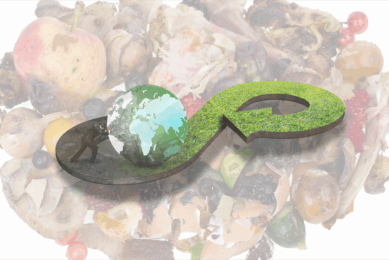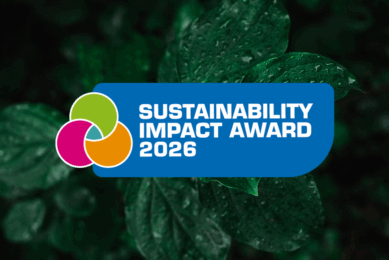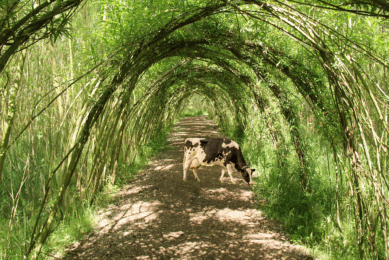Circular agriculture breakthrough wins leading UK award

Imperial College London PhD student Ben Roberts has been awarded the prestigious Sir Michael Uren prize for his innovative research into sustainable food systems and circular agriculture.
Insects for climate-resilient farming
His project explores the potential of novel insect farming techniques to address pressing environmental challenges and deliver scalable, climate-resilient solutions for food production, particularly in regions facing climate stress and food insecurity.
Prize supporting practical innovation
Established through the generous support of the Michael Uren Foundation, the Sir Michael Uren Prize recognises postgraduate students who demonstrate outstanding academic excellence and a compelling vision for translating research into real-world environmental, economic, societal or health benefits. The award includes a £20,000 grant to support the recipient’s ongoing research and impact-focused activities.
Turning waste into animal feed
Ben’s winning proposal focuses on the use of insect larvae to convert palm plantation agricultural waste, a significant pollutant often disposed of through harmful open burning, into high-quality animal feed.
A circular food production model
By transforming waste into a valuable and sustainable protein source, the project offers a circular approach to food production that significantly reduces the need for land, water and other resources. Combining environmental engineering, microbiology and systems thinking, Ben’s work is developing a scalable and replicable model for circular food economies.
Cross-disciplinary sustainability vision
Ben’s research reflects the ambition and interdisciplinary ethos that the Sir Michael Uren Prize was established to support. His work sits at the intersection of sustainable agriculture, biotechnology and environmental policy, and serves as a model for how academic research can catalyse systems-level change in the global food sector.
Future impact
“Receiving the Sir Michael Uren Prize is an incredible honour,” said Ben. “The trustees’ support has made it possible to pursue a project I’ve been passionate about for years but couldn’t fully realise without dedicated funding. It’s also fantastic to see such strong interest in circular agriculture and the role insect farming can play in building a more sustainable future.”
Showcased at Sustainability Symposium
The award was presented during Imperial’s Symposium on Sustainable Agriculture, hosted in collaboration with the newly launched School of Convergence Science at the White City Campus. The symposium brought together researchers from across disciplines to explore future-facing solutions to global agricultural challenges, with Ben’s project recognised as a standout example of translational, impact-led research.
Commended for scalable innovation
Professor Mary Ryan, Vice-Provost (Research and Enterprise) and Chair of the Sir Michael Uren Prize Committee, praised Ben’s achievement. “Ben’s work exemplifies the kind of translational, impact-driven research the Sir Michael Uren Prize was designed to support. His proposal stood out for its scientific rigour, environmental significance and bold vision for scalable sustainability.”
The Trustees of the Michael Uren Foundation also commended Ben’s success. “His project exemplifies the values that Sir Michael championed: science driven by purpose, and research with the capacity to deliver transformative impact for both society and the environment. We look forward to seeing how this work develops from laboratory innovation into globally applicable solutions.”
Scaling and localising the work
Looking ahead, Ben plans to use the prize funding to expand his fieldwork and strengthen partnerships with policymakers, NGOs and agricultural stakeholders. He aims to conduct trials in different geographical contexts to further demonstrate the environmental and economic benefits of insect-based feed systems. These efforts will include engagement with regulators and local communities to ensure that sustainable innovations are appropriately adapted to the needs of diverse food systems.
Global recognition for insect farming
With insect farming gaining traction in global food policy circles, including recognition from the UN and EU, Ben’s work contributes valuable, field-tested insights into how these innovations can be deployed equitably and effectively.
Supporting climate-conscious food systems
Ben’s recognition comes at a time when the demand for climate-conscious and circular approaches to global challenges is increasingly urgent. With the support of the Sir Michael Uren Prize, he is well positioned to advance his research, develop new academic and policy collaborations, and contribute to the transition towards more sustainable and equitable food systems.











